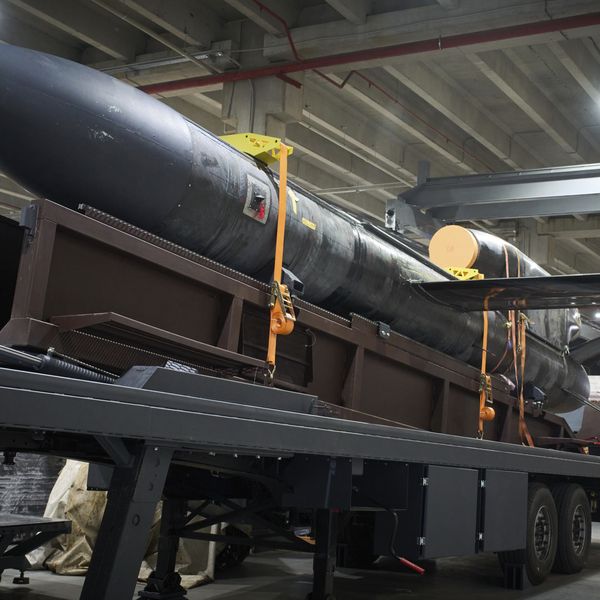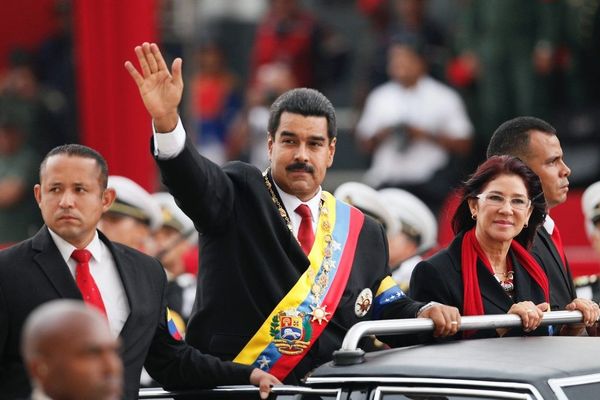OPINION — President Trump and elements of his administration are publicly assessing that China poses a greater national security threat to the US election than Russia.
Attorney General Bill Barr started it off last Wednesday on CNN when he was asked which country was most aggressive and he answered, “I believe it’s China…because I have seen the intelligence, that’s what I’ve concluded.” He refused to give any details, saying, “I’m not going to get into that.”
As for the Russians, Barr said, “I suggest there is some preliminary activity and they might try again,” a reference to Moscow’s activities in support of the Trump 2016 presidential campaign.
At last Friday’s press briefing on the Serbia-Kosovo agreements, National Security Advisor Robert O’Brien picked up where Barr left off.
When he was asked about Russia’s spreading of false voting information he responded, “When it comes to elections and what the intelligence community has made very clear is that, first, you have China, which has the most massive program to influence the United States politically; [then] you have Iran, and you have Russia.”
A reporter brought up Barr’s previous assessment that China was more aggressive meddling in the U.S. election than Russia and O’Brien said, “Yeah. I agree with him 100 percent.”
When it came up again, O’Brien responded, “And again, we know that the Chinese have taken the most active role, but the Russians and the Iranians and other countries are involved as well.”
Finally, O’Brien was asked, “What specifically you’re seeing from China that makes you believe that they have a bigger or harder-working electoral interference operation than Russia or other countries?”
Instead of providing one example, O’Brien responded, “You know — well, look, when it comes to the election, everything that they’re doing across the board,” and he described activities of Confucius Institutes and bullying American businessmen. He finished saying, “I’m not going to go into all the intelligence, but the massive activities of the Chinese in the cyber realm, it’s really an extraordinary thing that we’re facing.”
This new attempt to portray China as a greater actor than Russia when it comes to attempting to influence American voters in the 2020 election has an interesting background.
On August 30, Director of National Intelligence John Ratcliffe said on Fox News that his reason to end once promised in-person briefings on foreign interference in the 2020 presidential election was because some House Democrats, after his July 31 closed-door appearance, “leaked classified information, again, for political purposes, to create a narrative that simply isn't true, that somehow Russia is a greater national security threat than China."
Ratcliffe gave no example of what classified information had leaked, nor has there been any indication that a report had been sent to the Justice Department.
Democrats at the time, and after Ratcliffe said he would cancel planned briefings, took issue with the idea that China was the bigger threat when it comes to US elections. Speaker of the House Nancy Pelosi (D-Calif.) and House Intelligence Committee Chairman Adam Schiff (D-Calif.) said in a statement that Ratcliffe was promoting “a false narrative of equivalence.” and that, “Only one country—Russia—is actively undertaking a range of measures to undermine the presidential election and to secure the outcome that the Kremlin sees as best serving its interests,” they said.
Back in early July, the Department of Homeland Security withheld from distribution to federal, state and local law enforcement partners, a draft intelligence bulletin titled “Russia Likely to Denigrate Health of U.S. Candidates to Influence 2020 Election,” according to ABC News.
The draft, which mentions Iranian and Chinese efforts critical of Trump, was primarily focused on Russian state media news services RT and Sputnik and their attacks on former Vice President Joe Biden’s mental fitness. The draft also described a Russian proxy website which between September 2019 and May 2020 posted allegations about Biden’s alleged poor mental health. It mentioned one story on the Russian proxy website last March that "refuted media claims that the candidate’s gaffes are a result of a stutter, instead arguing these verbal miscues are symptoms of dementia.”
“Please hold on sending this one out until you have a chance to speak to [acting Secretary of Homeland Security Chad Wolf]," wrote DHS Chief of Staff John Gountanis, according to an email obtained by ABC News. The bulletin was never circulated.
Last week, after the withholding of the July bulletin became public, Wolf told Fox News that his intelligence team “had questions about it” and were “hard at work on rewriting that report, putting it in some better context and I hope to see that report out soon."
Meanwhile, despite DNI Ratcliffe’s claim that China is the main threat, elements within the Intelligence Community seem to focus primarily on Russian activities.
On August 7, William Evanina, Director of the National Counterintelligence and Security Center (NCSC) produced his monthly “Election Threat Update for the American Public.” While NCSC analysts assessed that “China prefers that President Trump – whom Beijing sees as unpredictable – does not win reelection,” it said Beijing had only started “expanding its influence efforts ahead of November 2020 to shape the policy environment in the United States, pressure political figures it views as opposed to China’s interests, and deflect and counter criticism of China.”
Russia, however, is already “using a range of measures to primarily denigrate former Vice President Biden and what it sees as an anti-Russia ‘establishment,’” according to the NCSC assessment. It pointed out that Moscow had already criticized Biden for supporting Ukraine and “the anti-Putin opposition inside Russia.”
More specifically, NCSC’s assessment noted, “pro-Russia Ukrainian parliamentarian Andriy Derkach is spreading claims about corruption – including through publicizing leaked phone calls – to undermine former Vice President Biden’s candidacy and the Democratic Party.” It should be pointed out that Trump’s personal lawyer, Rudy Giuliani met with Derkach in Kiev last December and in the U.S. last February in his search for negative information about Biden.
Remember, Trump back in June 2019 said on ABC News, "If somebody called from a country, Norway, [and said] ‘we have information on your opponent' — oh, I think I'd want to hear it."
Giuliani traveling abroad looking for such information just takes that view one step further.
Also on August 7, Army Brig. Gen. Joe Hartman, commander of the Cyber National Mission Force at U.S. Cyber Command and Dave Imbordino, the election security lead with the National Security Agency, talked primarily about Russia’s current activities during a panel discussion that was part of the 2020 DEF CON convention.
They said the “Russian Small Group,” set up to influence the 2018 U.S. congressional elections was still at work. Imbordino said Moscow’s Internet Research Agency (IRA), had set up troll farm operations overseas in Ghana and Nigeria to generate misleading and divisive information to influence voter opinion.
As for China, Imbordino said, it “has proven effective in doing the same in their own part of the world, in Taiwan and Hong Kong, for instance.” He added that China “becoming potentially more aggressive in the U.S. space is something that we need to monitor and be prepared for."
Last Wednesday, ABC News reported a new analytic bulletin by Homeland Security’s intelligence unit, released to federal and state law enforcement agencies, that focused on Russian influence actors who have since last spring, targeted U.S. mail-in and absentee voting systems.
“Russian state media and proxy websites in mid-August 2020 criticized the integrity of expanded and universal vote-by-mail, claiming ineligible voters could receive ballots due to out-of-date voter rolls, leaving a vast amount of ballots unaccounted for and vulnerable to tampering,” ABC News quoted the bulletin as saying.
The Russian-controlled websites alleged the U.S. Postal Service and local election personnel would be overwhelmed “delaying vote tabulation and creating more opportunities for fraud and error,” according to the bulletin.
Trump and his campaign have talked similarly about the threat from mail-in voting as they have of many of the other themes promoted by Russian influence operations aimed at the 2020 election. That’s what took place in 2016, when Trump directed the public to look at the hacked Hillary Clinton and Democratic Party emails that were made public thanks to Russian hackers.
Perhaps that is why the White House is trying to refocus public attention on China’s activities, because the Trump campaign’s attacks on Biden are being bolstered by the Russians. At the same time, China’s initial efforts appear to be in support of Biden and against Trump.
Read more expert-driven national security insights, perspective and analysis in The Cipher Brief













